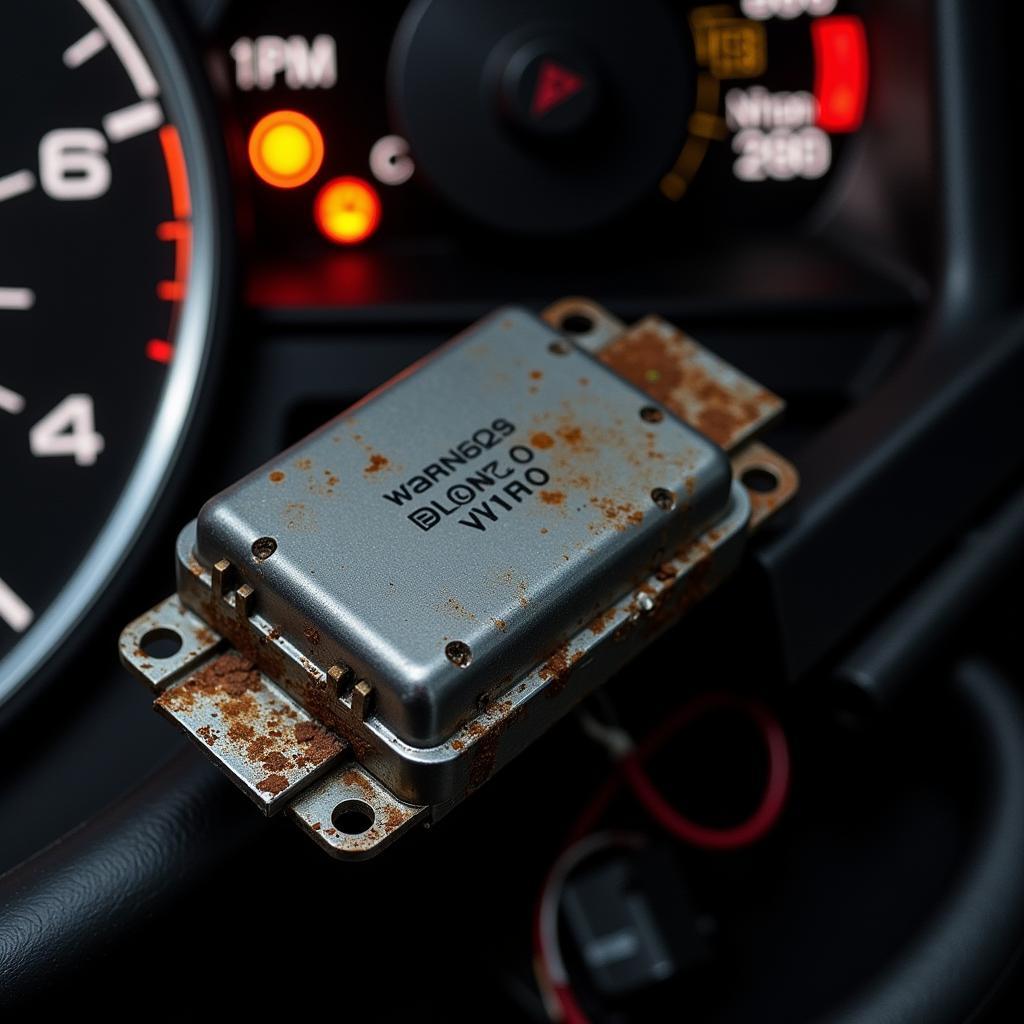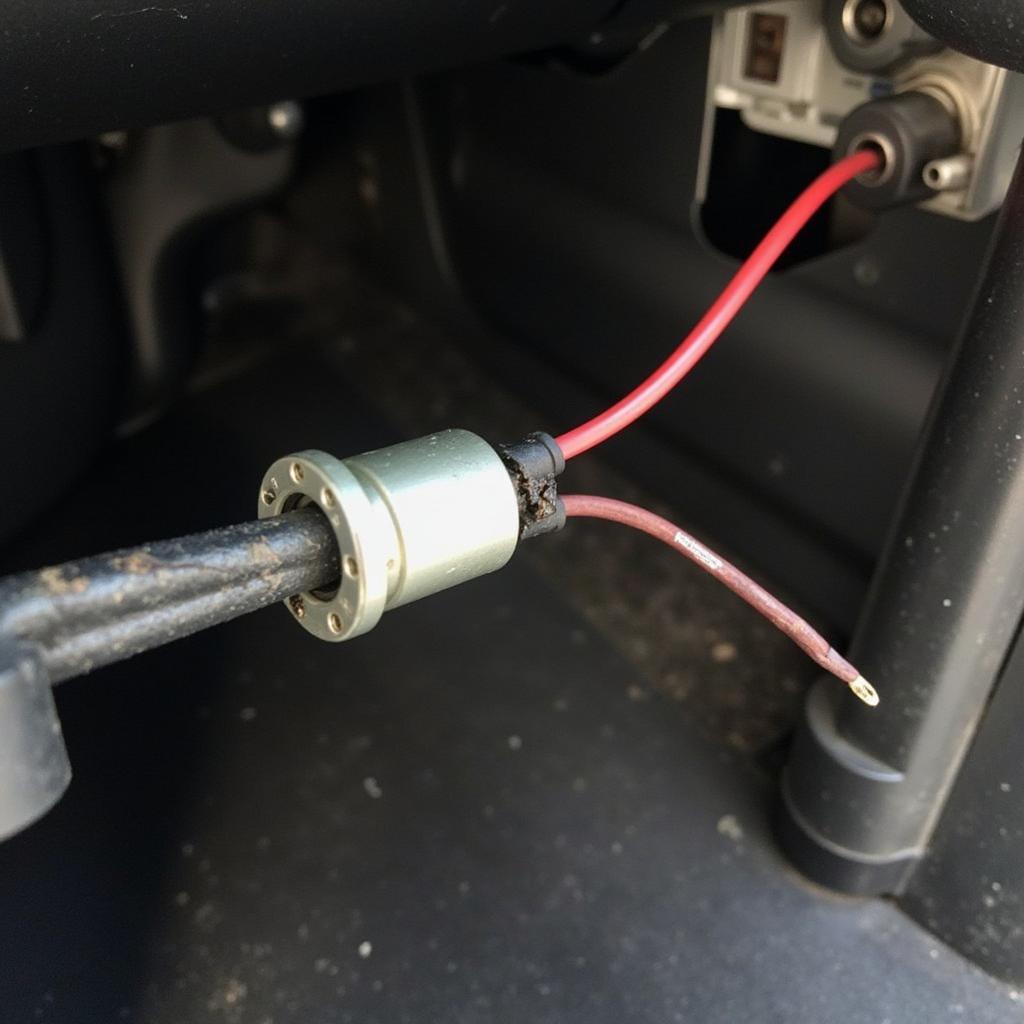Experiencing warning lights on your dashboard can be alarming, especially when it involves your car’s braking system. The anti-lock brake (ABS) and traction control systems are critical safety features, and when their warning lights illuminate, it’s crucial to understand what they mean. This article serves as a comprehensive guide to help you understand why these warning lights activate and what steps to take when you encounter them.
Understanding ABS and Traction Control Systems
Before delving into the warning lights, let’s briefly discuss what these systems do:
- Anti-lock Brake System (ABS): Prevents wheel lockup during hard braking, allowing you to maintain steering control. It does this by rapidly pumping the brakes, ensuring optimal tire contact with the road surface.
- Traction Control System (TCS): Works in conjunction with ABS to prevent wheel spin during acceleration, particularly on slippery surfaces. It helps maintain traction and control, preventing your vehicle from skidding.
Common Causes of ABS and Traction Control Warning Lights
Several factors can trigger these warning lights, ranging from simple sensor issues to more complex problems with the system components.
1. Faulty Wheel Speed Sensors
Wheel speed sensors are vital for both ABS and TCS operation. These sensors, located at each wheel, monitor wheel speed and relay this information to the car’s computer. A malfunctioning sensor can disrupt this data flow, leading to warning light illumination.
2. ABS Module Problems
The ABS module is the brain behind the entire system. It receives data from the wheel speed sensors and controls the brake pressure accordingly. Issues within the module, often electrical in nature, can cause erratic system behavior and trigger warning lights.
 car-abs-module-malfunction-warning-light
car-abs-module-malfunction-warning-light
3. Low Brake Fluid Levels
Brake fluid is the lifeblood of your braking system, responsible for transmitting force from the brake pedal to the wheels. Low brake fluid levels can affect ABS and TCS performance, leading to warning lights and potentially compromising braking ability.
4. Damaged Wiring and Connectors
Like any electrical system, the wiring and connectors associated with the ABS and TCS are susceptible to damage. Corrosion, loose connections, or physical damage can disrupt signal transmission, leading to system malfunctions and warning light activation.
5. Brake Pedal Sensor Malfunction
While less common, a faulty brake pedal sensor can also trigger these warning lights. The sensor detects when the brake pedal is pressed, signaling the ABS and TCS to activate when necessary. A malfunctioning sensor can disrupt this process.
 close-up-brake-pedal-sensor-error
close-up-brake-pedal-sensor-error
What to Do When the Warning Lights Come On
Ignoring these warning lights is never a good idea. Here’s a step-by-step guide on what to do:
- Assess the Situation: Is the warning light steady or flashing? A steady light might indicate a less severe issue than a flashing one.
- Check Your Brake Fluid: If you’re comfortable doing so, safely inspect your brake fluid level. Low fluid needs immediate attention.
- Drive Cautiously: If possible, avoid hard braking or sudden acceleration until the issue is resolved.
- Seek Professional Diagnostics: Don’t delay getting a professional diagnosis. They have the tools and expertise to pinpoint the exact cause.
Remote Diagnostics and Software Solutions
In today’s technologically advanced world, remote diagnostics and software solutions are increasingly used to diagnose and address vehicle issues, including those related to ABS and TCS.
“Remote diagnostics can often identify the root cause of ABS and traction control issues without the need for a physical inspection,” says John Smith, Senior Automotive Engineer at XYZ Automotive. “This allows for quicker diagnosis and more targeted repairs.”
These solutions can involve:
- Scanning for Error Codes: Technicians can remotely access your car’s computer system to retrieve diagnostic trouble codes (DTCs) associated with the warning lights.
- Software Updates: In some cases, software updates for the ABS or TCS modules might be available to address known issues. These updates can be installed remotely.
Importance of Addressing Warning Lights Promptly
Addressing ABS and traction control warning lights promptly is crucial for several reasons:
- Safety: These systems are crucial for safe driving, especially in emergency situations or challenging road conditions. Malfunctions can compromise your ability to brake and control the vehicle.
- Preventing Further Damage: Ignoring warning lights can lead to more severe damage to the ABS, TCS, or other related components. Early diagnosis often leads to less costly repairs.
- Peace of Mind: Knowing your car’s safety systems are functioning correctly provides peace of mind while driving.
Conclusion
Anti-lock brake and traction control warning lights are serious indicators that should never be ignored. By understanding the potential causes and taking prompt action, you ensure your safety and maintain the optimal performance of your vehicle’s critical safety systems. Don’t hesitate to seek professional assistance for brake pedal acting like abs but no warnings on, BMW brake warning light yellow, or any other brake-related issues. Remember, a well-maintained car is a safer car.


